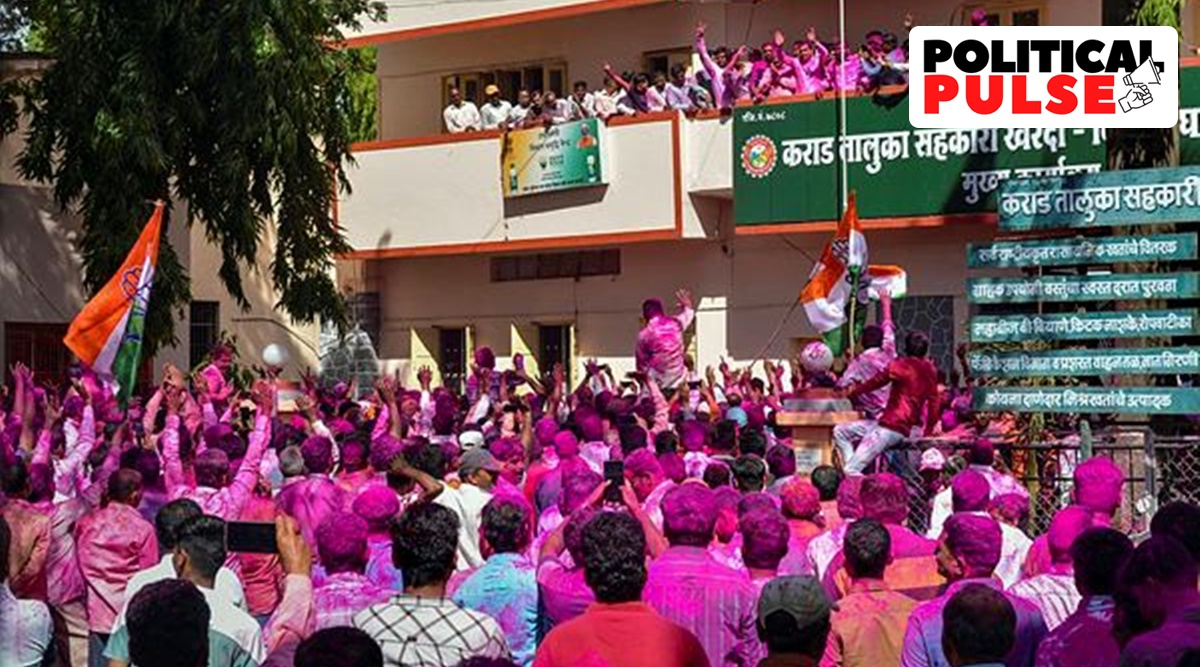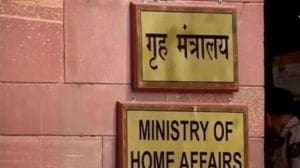IN WHAT will warm the hearts of the troubled Maha Vikas Aghadi, the three parties part of the strained coalition managed to win most of the 255 agricultural produce marketing committees (APMCs), for which elections were held in Maharashtra on April 28.
Perhaps for the first time ever, all the 255 APMCs in Maharashtra went to polls simultaneously. While in some of them Covid-19 had delayed elections, others such as Pune had not seen polls for 20 years.

Like in other cooperative elections, party symbols are not used for APMC polls, but parties try and ensure their “panels” win. This time, MVA constituents Shiv Sena (UBT), NCP and Congress went for micro and macro adjustments to keep their flock together.
While the MVA parties won in most of the mandis, there were a few exceptions, with the NCP and BJP coming together to keep out the Congress, and the Congress and BJP uniting to win against the NCP at some places.
In Karad, where the NCP and BJP joined hands, the Congress-backed still panel won 12 of the 18 seats.
In Varud market committee in Amravati district, the Congress got together with the BJP to win.
With all parties hitting the road, canvassing to get their panels elected, MVA leaders called the results, released on Sunday, an indication of which way the wind is blowing, and said it had fired up their rank and file.
Story continues below this ad
The BJP took heart from managing to “cock a snook” at the NCP by winning the Pune APMC.
After the Congress won 18 of the 18 AMPC directorships in Latur’s wholesale market, its Latur Rural MLA Dhiraj Deshmukh said it was an indication of the party’s consolidation of its base. “Thanks to the work of the previous Congress-led panel, voters this time decided to give us full power,” he said.
In the outgoing APMC, the BJP held five director posts.
Similarly in the Nashik APMC, the NCP won 9 of 15 director seats and the BJP 5. Devidas Pingale of the NCP alleged they lost the 5 due to “official interference”.
Story continues below this ad
BJP-led or supported panels managed to win in Pune, Chhatrapati Sambhajinagar, Ahmednagar, Karjat. The Pune election was keenly watched as it was being held after 20 years. Here, the BJP-backed ‘all-party panel’, comprising mainly NCP rebels, won 13 of the 18 director posts, in news that will be shocking for the NCP that sees Pune as its base.
In another setback to the NCP, the BJP won the Karjat APMC. High-profile NCP leader Rohit Pawar (grandnephew of Sharad Pawar) is the MLA from Karjat Jamkhed constituency. The BJP’s Ram Shinde, whom he defeated, is believed to have played a crucial role in the APMC elections.
In Vidarbha, the BJP suffered setbacks as its state president Chandrashekhar Bawankule failed to retain the APMC in Kamptee Maudha.
The party also lost important APMCs in Buldhana, Yavatmal and Akola. In Sangli, BJP MLA and Labour Minister Suresh Khade saw the APMC directorship go to an MVA-led panel.
Story continues below this ad
Similarly, Shiv Sena (Shinde faction) ministers Dadasaheb Bhuse and Sanjay Rathod could not ensure victory of panels in their areas – Malegaon (Nashik) and Digras (Yavatmal), respectively.
APMCs are cooperative bodies responsible for regulating trade of agricultural produce in their area of operation, aned hold a lot of clout in Maharashtra rural areas. A former director of marketing of Maharashtra said an APMC director post is coveted next only to being an MLA of the area.
The APMC director is elected by its constituent members, which include gram panchayats, primary agricultural credit societies, and unions of workers, traders and commission agents. The directors then elect an APMC chairman. An APMC’s term is five years.
Pointing out that since there is never any let-up in trade in agricultural committees, the officer said the APMCs are always rich in cash. “They have their own budget which they can use to develop markets and directors can use this platform to strengthen their hold over voters.”
Story continues below this ad
Several serving ministers and many sitting MLAs in the state have been APMC directors.

































